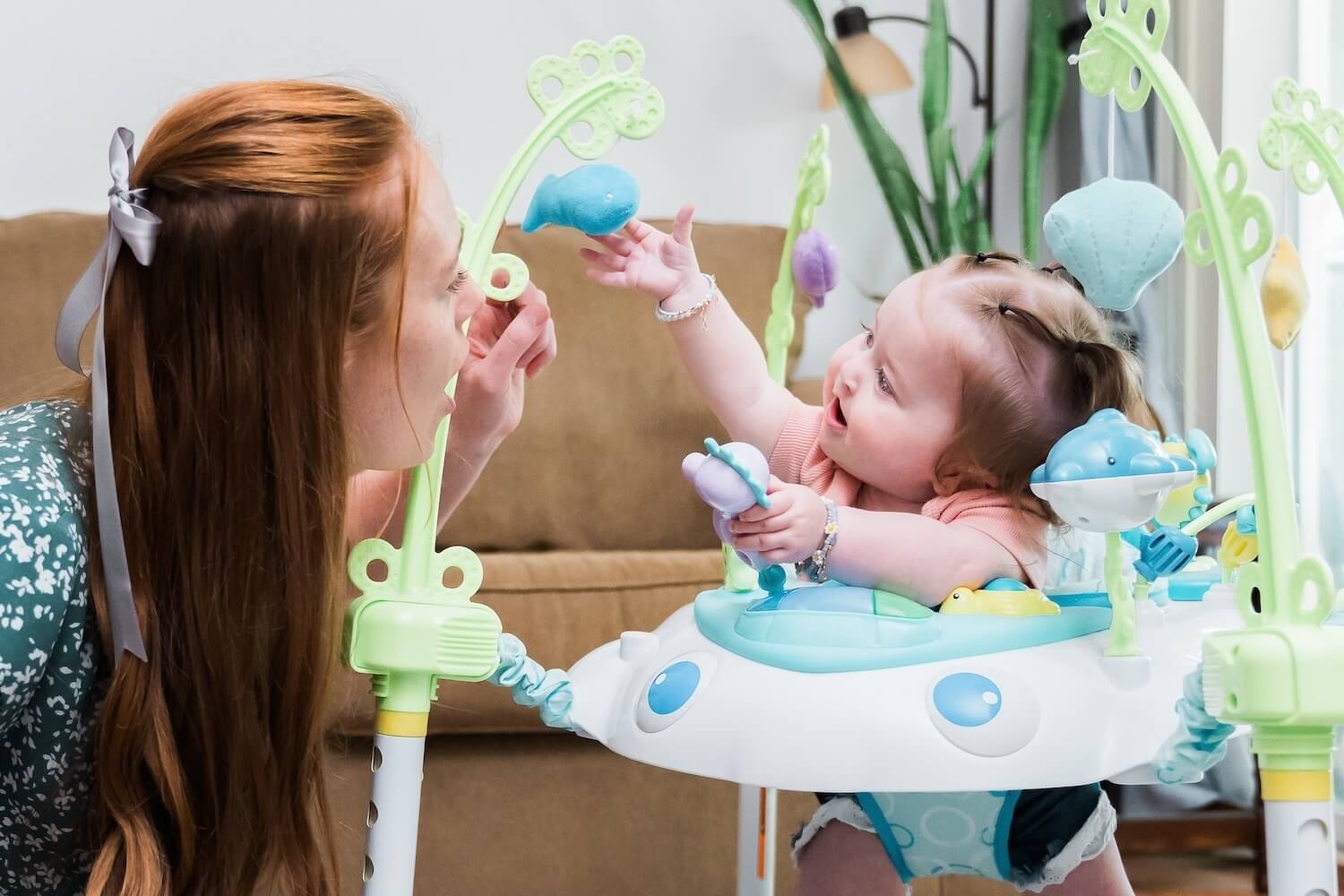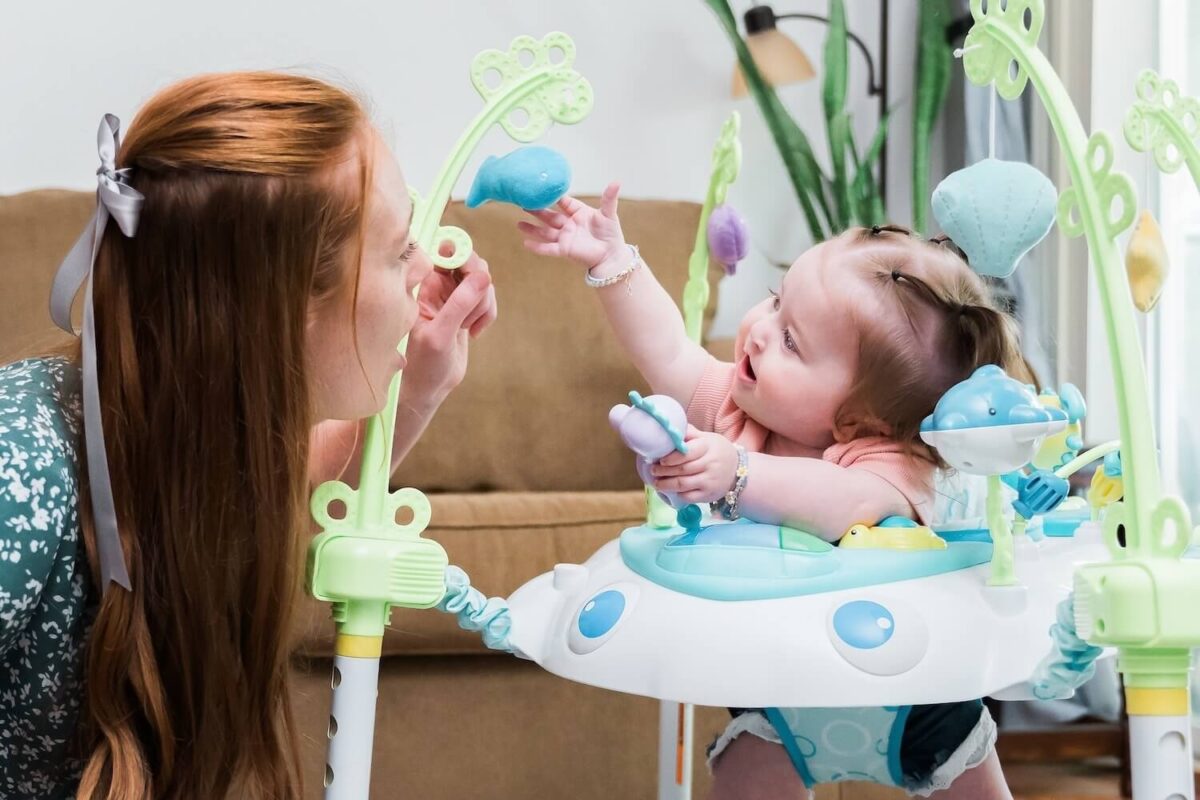
Connecting, Feeling, and Learning: A New Mexico Expert (and Mom!) has Tips for Raising Healthy, Happy Kids
Raising young children is full of trial and error. Strategies that worked beautifully with a firstborn child may fail entirely with a second, and babies, as they say, do not come with an instruction manual.
But even though your particular child doesn’t come with instructions, you don’t have to figure everything out on your own. We spoke with Liz Martinez, a mom who is also the executive director of the New Mexico Association for Infant Mental Health.
If the phrase “infant mental health” is unfamiliar, don’t worry! We’re here to break it down, offer some tips, and assure you that you’re probably already supporting your child’s mental health in little ways all day long. Liz described infant mental health as three key ideas: connection, emotions, and learning.
Connection
Warm relationships are important for most people’s mental health, and this is especially true for young children who depend on adults to meet their basic needs. This is great news, because it means that bonding, snuggling, singing, and other cozy time with your baby are healthy for their development. So the next time you find yourself curled up with your baby saying mature, insightful things like, “Who has the softest nose in the whole world? Is it you?? Let’s see how soft it is!” congratulate yourself for creating moments that are deepening your relationship and helping your child feel safe and cared for.
As in any healthy relationship, you don’t want to do all the talking. Connecting with your baby also means paying close attention to their cues, or the noises and actions they use to signal how they’re doing. This can mean happy babbling and cooing, crying, nibbling their fingers or grabbing for something. By paying attention to your baby and having back-and-forth interactions with them, you start to build social skills that children will use for the rest of their lives. These “conversations” can start from birth, by “allowing back-and-forth exchanges even before your baby is verbal,” Liz said. “Your baby babbles, you babble back. Your baby babbles, you babble back.”
Emotions
Emotions are a big part of being human, and we start feeling them early. For babies and young children, Liz said a key strategy is to learn the names for feelings, practice strategies for managing emotions, and let children know that feelings—even hard ones—are OK and are part of being a person. Liz suggested starting with simple feelings like happy, sad, and angry, and adding more complicated feelings over time (for example, disappointed or excited).
Once children have named their emotions, it helps to have strategies for managing big feelings. Deep breathing helps children find calm when their emotions are overwhelming, and Liz recommended simple breathing rituals like “five-finger breathing,” which combines deep breathing with simple hand movements. Or, if you like props, make a glitter bottle and calm down by watching the glitter drift and settle. Importantly, these strategies aren’t about making emotions go away. Instead, they’re about learning to control and regulate our bodies so we can feel the emotion more calmly. And regulation isn’t just for sadness and anger—children may also need to calm pleasant emotions like excitement.
Exploration and Learning
Finally, young children need chances to learn and explore through play. Even when babies are very small, you can help by offering them new and interesting things to touch and feel. And this doesn’t mean you have to go out and buy a bunch of baby toys. You can try something cold and then something warm, or fabrics with different textures. Every time your baby has a new experience, they are learning about how their world works and forming connections in their brains.
Children can explore more widely as they get older, and will feel safer if they have a trusted adult nearby. “You’re letting the baby know that they’re safe to explore because you’re right here. I am right here, and I’m cheering you on,” Liz said. “So that also goes back to that relationship building. I am cheering you on while you learn to crawl. I am cheering you on while you figure out how to put that shape in that container.” Having a trusted adult nearby also means that when children inevitably fall or struggle, an adult is ready to comfort them and encourage them to try again.
Finding Support
For many families, Liz said, infant mental health practices are already happening every day. “Whenever I introduce the concepts of infant mental health to families… I give a disclaimer that there is a really good chance that what they’re doing promotes and supports infant mental health,” she said. “What I’m going to do is help them organize it into these three components.”
If support from someone like Liz sounds helpful, she recommends signing up for home visiting. Home visiting is offered for FREE all across New Mexico for families who have young children under 5 or are expecting new babies. Home visitors are trained in infant mental health and will come to your home to offer guidance, individualized suggestions for you and your child, and a non-judgmental listening ear.

Ready for FREE Support?
Learn more about home visiting at nmececd.org/homevisiting
Ready to sign up? Click on “Start home visiting referral”

